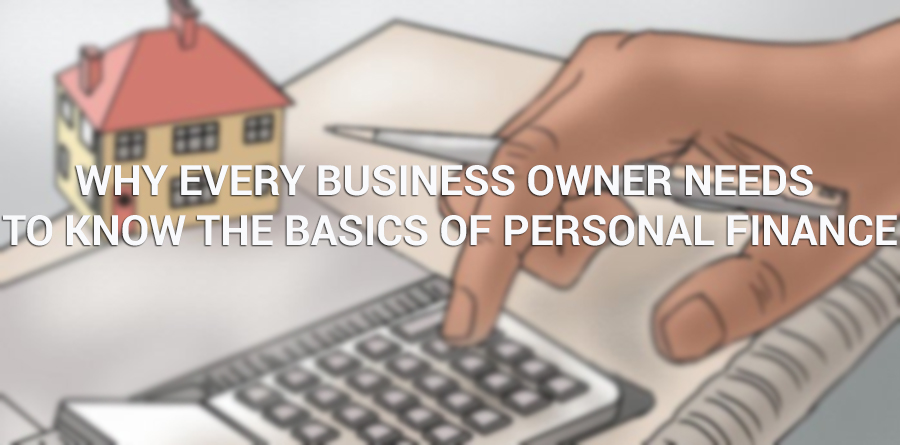Why Every Business Owner Needs To Know The Basics Of Personal Finance
Perhaps one of the biggest culprits to why businesses fail is poor finances. Granted, sometimes it’s just that there wasn’t enough revenue coming in. But for some firms financial mismanagement played a significant role, leaving them and their team unemployed. And out of the estimated 27.9 million small businesses in the U.S, a fair amount of them might fall victim to this trap. Why? Because these decisions start at the top.

Some people can be great businesspeople but terrible financial managers. How early they catch on to that might mean they stand a better chance at survival, but for most business owners, it’s imperative they know the value of personal finance as well. Not only will it help them understand the numbers better, but will give them a better picture of what the future holds. Overall, being able to translate your personal habits and behaviors to your business is imperative to its success. Here’s why:
The Two Can Directly Be Correlated (Despite The Fact That They Shouldn’t Be)
Your personal finance is tied to your business more than you might think. When starting out you might only have your personal credit score to apply for business loans and credit cards, that relationship can follow you for quite a bit of time. And even though some people think that being a business owner means they can pay themselves whenever they see fit, that’s simply not the case. In fact, behaviors like that can actually lead to some pretty costly consequences.
When starting a small business, begin by separating your business and personal finances. If you need to do something like fix your credit, then assess how that can be done before you start diving into loans or lines of credit. Second, have a strict budget for what you’re going to pay yourself and stick to it. As you bring on employees, it’s easy to get a bad rep as an owner for paying yourself bonuses in excess while your other team members don’t receive the same benefit. This can lead to bad word of mouth, which could affect your personal brand, and in return, your business. Finally, tying too much of your personal and business finances can lead to poor mismanagement, which can kill any accurate picture of affordability.
It Helps Gauge Affordability
How you handle your personal finances is largely going to reflect on how you handle those of your business as well. I’m willing to bet if right now you took a survey of a thousand business owners on the success of their finances in each category, the two would be strongly correlated with one another. Those that know affordability and its limits are going to be not only better at running the books but are also more prepared for a rainy day. These are crucial skills to have, as they’re largely going to be what determines your ability to forecast, both personally and professionally.
Everyone knows that personally, there are certain things you need to be prepared for like a new car, weddings, or even buying a house. However, when it comes to running a business, the things that you might need money for in the future such as increased inventory or new equipment may not come about as intuitively. That’s why it’s good to have an acumen on the types of things you might need later, especially as your business expands.
You Can Learn How to Expand
As your business grows, it’s going to be imperative to look at your financial picture as a whole and decide what other types of revenue models you can bring in. For example, let’s say you’re a mom and pop shop that wants to expand online but don’t have room for inventory. By understanding how much it would cost to start an eCommerce dropshipping business and saving beforehand, you’ll be much better off, as well as installing something that will help you earn more.
Whether you’re someone that runs a mid-sized business or just a freelancer, learning how to separate your personal and business finances is going to be an imperative skill to your success. This brings about a better sense of what you can afford, as well as maintains a better sense of personal reputation. As your business continues to grow, being an all-star at both your personal and professional finances will help take you to the next level.
—
As an entrepreneur, what’re some things you do to help keep your finances in check? Answer with your insights below.
